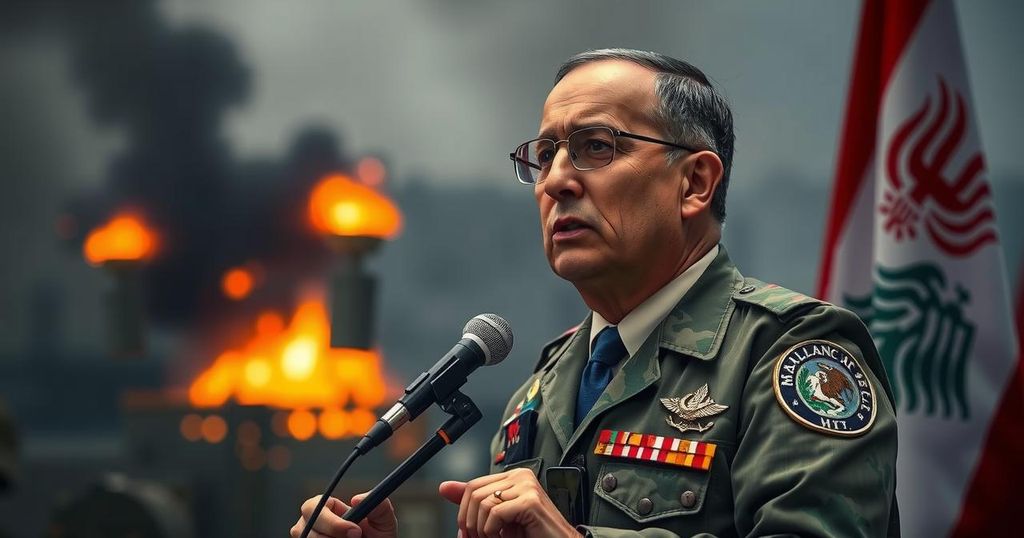Escalation in Middle East: No Ceasefire in Lebanon, Asserts Israeli Defense Minister

Israel’s defense minister, Israel Katz, has stated there will be \’no ceasefire\’ and \’no respite\’ in military actions against Hezbollah in Lebanon, amidst a significant humanitarian crisis. The recent military campaign has resulted in the deaths of over 3,000 individuals and extensive displacement within Lebanon. Katz’s firm stance contradicts previous claims of progress in ceasefire talks by foreign minister Gideon Saar.
Israel’s newly appointed defense minister, Israel Katz, has unequivocally rejected any discussion of a ceasefire in Lebanon, asserting that there will be “no ceasefire” and “no respite.”, and reaffirmed his government’s commitment to intensifying military operations against Hezbollah. Recent Israeli airstrikes and troop movements have resulted in considerable loss of life in Lebanon, with reports indicating over 3,000 fatalities thus far. Katz emphasized that Israel would not entertain any agreements that do not ensure its capacity to combat terrorist activities and achieve objectives such as disarming Hezbollah and reestablishing security for northern Israeli residents. Contrary to Katz’s statements, Israel’s foreign minister, Gideon Saar, had recently indicated that progress was being made on the potential for ceasefire negotiations, although reports suggest Hezbollah denied involvement in such talks. The ongoing conflict has resulted in significant displacement, with approximately 1.2 million Lebanese citizens forced to leave their homes due to the effects of Israel’s military actions. This crisis has also driven many residents in northern Israel to evacuate due to persistent rocket attacks from Hezbollah. Amidst this escalation, Lebanon’s caretaker prime minister, Najib Mikati, labeled the situation as an \
The ongoing conflict in the Middle East, particularly focusing on the hostility between Israel and Hezbollah in Lebanon, has escalated significantly since early October 2023. The tensions have erupted into military confrontations, leading to a substantial humanitarian crisis in the region. The political landscape remains complex, especially with the recent changes in Israeli leadership and the international implications of the conflict, including considerations of war crimes allegations. The humanitarian situation is dire, with massive displacement and loss of life. Statements made by Israeli officials reflect the lack of consensus on the approach to Lebanon and emphasize a militaristic strategy against perceived threats, particularly Hezbollah. The international community’s response and potential diplomatic interventions remain crucial in addressing the ongoing violence and humanitarian crises.
In summary, Israel’s steadfast refusal to consider a ceasefire in Lebanon, articulated by newly appointed defense minister Israel Katz, highlights the ongoing military focus of the Israeli government amidst deepening crises. This refusal is juxtaposed with earlier statements from foreign minister Gideon Saar regarding reportedly improved ceasefire discussions. The continuation of violence has led to severe humanitarian distress, particularly among Lebanese civilians, while the international community watches closely as the situation evolves.
Original Source: www.theguardian.com








